Reasons Why Rabbits Eat Their Own Poop
Rabbits, much like cats, are fastidious groomers and practice very good hygiene. They are often seen licking their paws, smoothing the fur on their ears, and even cleaning their bottoms. But when cleaning their bottoms, they may also consume a special type of poop. While this may sound like quite the opposite of a good hygiene practice, there is actually a good reason why rabbits do this.
What Is Coprophagia?
Coprophagia occurs when feces is consumed. The mere thought of this type of behavior is rather unsettling to most people, but some animals, such as rabbits, actually eat their own feces for a very good reason. Coprophagia is a normal, healthy behavior in rabbits, but in other animals, such as dogs, it is usually discouraged due to the lack of health benefits and level of disgust by the owners.
What Kind of Poop Do Rabbits Eat?
Rabbits eliminate waste material on a regular basis just like other animals and humans. Fecal matter typically exits a rabbit as a round pellet but will change shape if adequate fiber and water amounts are not ingested. Fecal matter is produced throughout the day as a rabbit is hopping around or visiting the litter box, but these constantly produced fecal pellets are not what a rabbit consumes.
In addition to the regular fecal pellets that rabbits produce during the day, a special type of poop is also excreted in the night. Cecotropes, also referred to as night feces, are a specific kind of poop that is different than regular rabbit stools. Cecotropes are softer, stickier, and are usually not even seen by a rabbit owner, because a rabbit often consumes them almost as they are exiting the body. The cecotropes are produced in the cecum, a part of the intestinal tract of a rabbit, by fermentation of the food a rabbit eats. They are also only produced at night, so a rabbit will be seen eating them late at night or early in the morning. Usually, the only time you will see cecotropes in your rabbit's cage or on its fur is if your rabbit is not feeling well and therefore not eating its cecotropes.
Why Do Rabbits Eat Poop?
Cecotropes are full of nutrients that a rabbit needs. These special feces contain more protein and vitamins than normal poops have, so by consuming its cecotropes (and a healthy diet), a rabbit is getting all of the important nutrients that it needs to stay healthy. It is completely normal behavior for rabbits to eat cecotropes at night or early in the morning, but it is not normal for them to eat their normal stools during the day.
Signs Your Rabbit Is Eating Its Poop
If you aren't sure if your rabbit eats its poop, there are a few key indicators you can look for.
First, check your rabbit's hind end. A rabbit normally has a clean rear end because, even though cecotropes are soft and sticky, it is consuming these poops as they are exiting the body. If there are small, soft, sticky poops stuck to your rabbit's fur, then your rabbit isn't eating its cecotropes. If there aren't any of these soft poops, then your rabbit is consuming them as it should be.
Second, check the litter box and cage floor where your rabbit sleeps. If all of the poops that are present appear round and normal, then your rabbit is probably eating its cecotropes.
Third, watch your rabbit late at night or early in the morning. If you see it cleaning its hind end and spending more time licking below its tail, then it is eating its cecotropes.
Should You Prevent Your Rabbit From Eating Its Poop?
No! If a rabbit does not get to eat its cecotropes, then it may be lacking some nutrients necessary for its special digestive tract to work properly. If you see your rabbit cleaning its hind end, do not disturb it.
What If Your Rabbit Isn't Eating Its Poop?
If your rabbit isn't eating its cecotropes, then there is most likely an underlying reason why. This could be as simple as your rabbit is too obese or arthritic to reach its cecotropes, or as serious as a digestive or other medical concern. Some rabbits that have not received appropriate nutrients from their cecotropes may benefit from transfaunation. This is when cecotropes from a healthy rabbit are fed to a sick rabbit in order to reestablish a healthy intestinal tract.
RECOMMENDED NEWS
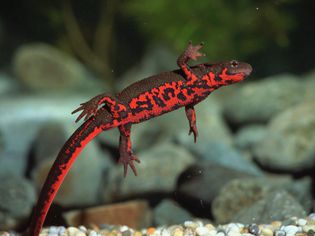
Fire Belly Newt: Species Profile
The Chinese fire belly newt (also called the oriental fire belly newt) and the Japanese fire belly ...
Read More →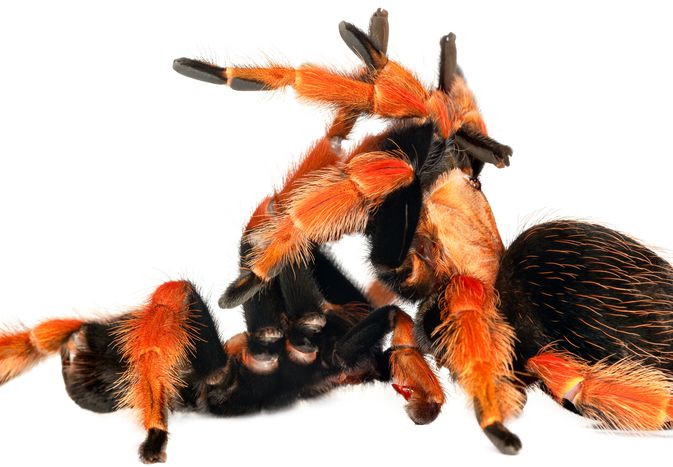
How Do Tarantulas Mate?
There are around 850 different species of tarantulas, and several of them have found their way into...
Read More →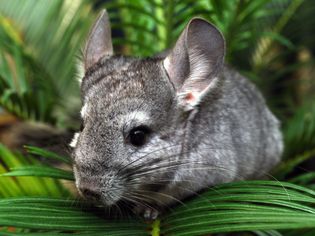
How to Care for Your Chinchilla's Teeth
Not all exotics have problems with their teeth, but chinchilla teeth can be problematic. Chinchilla...
Read More →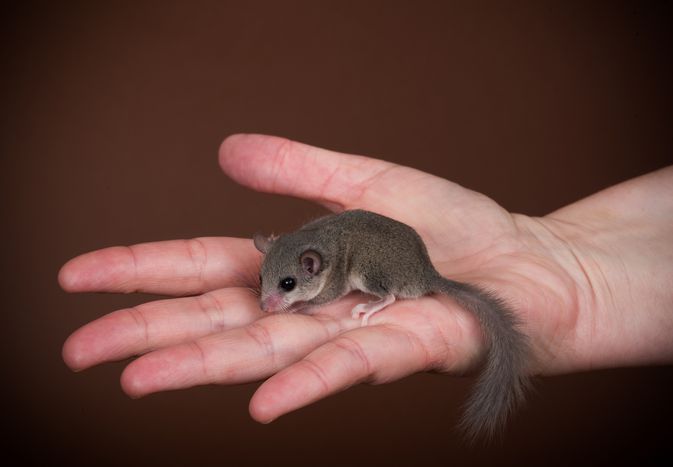
Should You Keep an African Dormouse as a Pet?
The African dormouse, also known as a micro squirrel, is a tiny rodent that looks a lot like a very...
Read More →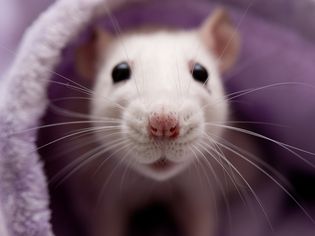
Breathing Problems in Pet Rats: Causes & Treatment
Rats are often seen at the animal hospital for breathing issues, and these problems usually come on...
Read More →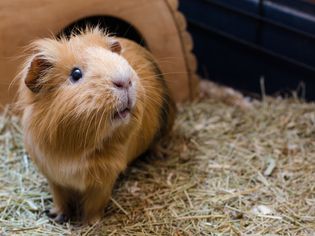
Guinea Pig Bladder Stones
Guinea pigs are prone to several health problems, and getting bladder stones are one of them. Guine...
Read More →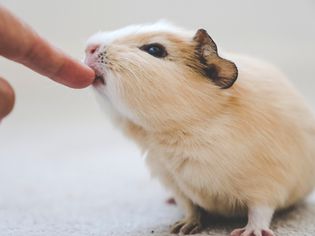
Why Guinea Pigs Bite and How to Stop It
Guinea pigs are very popular small pets and are great for both kids and adults. Guinea pigs are per...
Read More →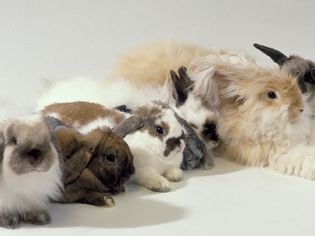
An Overview of Rabbit Fur Colors and Patterns
The number of coat colors that pet rabbits can come in is long and sometimes confusing. The followi...
Read More →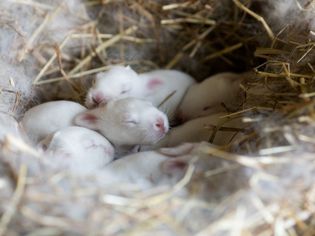
Pregnancy in Rabbits: A Guide to Rabbit Gestation
A rabbit's gestation period is typically between 28 and 30 days, but this can vary depending on...
Read More →
Comments on "Reasons Why Rabbits Eat Their Own Poop" :